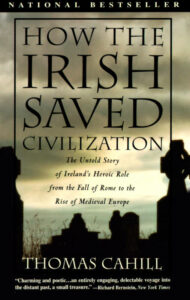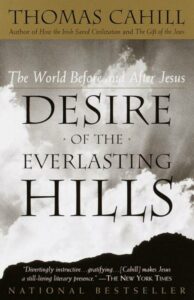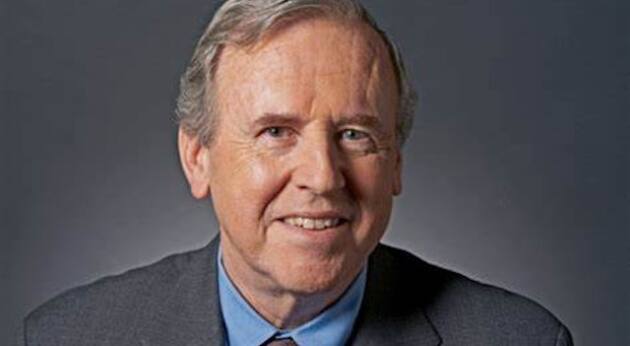Thomas Cahill, author of such bestsellers as “How the Irish Saved Civilization” and “Desire of the Everlasting Hills,” has died at age 82. While the announcement of his death was overlooked by many media outlets, he’s being remembered as a scholar of ancient languages and belief systems with a knack for popular storytelling who regularly engaged readers.
Cahill died in his sleep Oct. 18 at his Manhattan apartment but it was not made public until Oct. 28.

“Mr. Cahill is a man of learning himself, and his writing is in the great Irish tradition he describes: lyrical, playful, penetrating and serious, but never too serious,” New York Times critic Richard Bernstein wrote in 1995. “And even when his conclusions are not entirely persuasive — they do in places hang on rather slender reeds of evidence — they are always plausible and certainly interesting.”
He once criticized scholars, tellling the Philadelphia Inquirer they “tend to be extremely cerebral and go toward ‘what’s the philosophical structure here, or what’s the ideological structure?’ They miss the tears and the laughter, the blood, the sweat, all those things that actually put us in touch with these people of the past.”
His book on Ireland formed part of what he called his “Hinges of History” series, a broad and idiosyncratic review of Western civilization and moments he believed were turning points, “a narration of how we became the people that we are,” as he told the AP in a 2006 interview. “Desire of the Everlasting Hills” focused on the New Testament and the life of Jesus. The book gives an intriguing glimpse into life during the time of Christ, whom Cahill described as the singular most important person in human history.

The book has become a must-read for travelers to the Holy Land or anyone wanting a fuller picture of the times behind the scriptures.
Other books include “The Gifts of the Jews: How a Tribe of Desert Nomads Changed the Way Everyone Thinks and Feels.” The book is described by the Washington Post as “a breezy retelling of biblical history that credited the Jewish people — ‘a tribe of desert nomads’ — with pioneering the concept of individuality, not to mention the idea of the weekend. To research the book, he spent a summer learning Hebrew, studied at the Jewish Theological Seminary in New York and traveled to the Middle East to visit Old Testament landmarks.”
He also wrote “Sailing the Wine Dark Sea” which celebrates the ancient Greeks and “Mysteries of the Middle Ages,” where Cahill countered popular beliefs that the Middle Ages was merely a time of superstition.
“Of course, there was plenty of ignorance, as there is in every age,” he told the AP in 2006. “But the advances we associate with the Renaissance in the arts, sciences, education, scholarship, linguistics and even political experimentation all got under way in the Middle Ages.”
Besides writing history, Cahill was an education correspondent for the Times of London and a contributor to the Los Angeles Times Book Review. He taught at Queens College, Fordham University, and Seton Hall University, and served for several years as director of religious publishing at Doubleday, which released much of his work, most recently the 2013 book “Heretics and Heroes.”
Cahill majored in classical literature and medieval philosophy at Fordham University, and received a master’s degree in film and dramatic literature from Columbia University. But his approach to his books was shaped in part by his Jesuit background, by the depth of his learning and the dullness of how he learned it. He would later resolve to combined scholarly discipline and a conversational tone.
“What academic writers forget is that everyone on Earth buys books for diversion, or entertainment,” he said in 2006. “Yes, they want to learn things, but they also don’t want to be bored to death while they learn those things.”
–Metro Voice and the Associated Press








